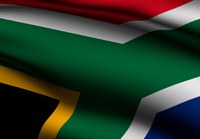
Near the end of his Philosophy of Right Hegel writes: "Not only do peoples emerge from wars withadded strength, but nations troubled by civil dissension gain internal peace as a result of wars with their external enemies."[1]
Whatever its truth as a philosophical claim, this remark appears more often than not to be true as an empirical one—or, at least, the latter part does.
Faced with an external threat, someone or something that is not us, humans have a tendency to unite, to come together as one. When we do, all those things that divided us internally are made to seem insignificant. What matters now, we think, is not who is right about this or that. Politicking must be put to one side. We face something far more significant. Right now, the issue is not some or other law or policy with which we might disagree. Nor is it even a value judgment that we find incomprehensible or intolerable. Rather, we face an existential threat, a challenge to the lives of our people, perhaps even to the being of the nation.
When this enemy of the people is not just external, but has already entered our communities, occupied our homes, infected our bodies, this most natural of human tendencies to unify in opposition to that which assails us only becomes more pronounced.
This is our predicament.
Having been told to adopt, and having only too willingly done so, the characterisation of the challenge presented by COVID-19 as an existential one, we find ourselves united against an invisible threat, an enemy like no other. With this medical challenge so understood, with the nation placed on war footing, it becomes natural to respond to televised declarations of health policy with public declarations of allegiance.
"We must support President Ramaphosa's difficult decision to extend the #21DayLockdown to a #35Day Lockdown", our much loved former Public Protector urged her many followers on Twitter. Must we, though?
Or, as another Twitter user put it, whose reaction was not only liked by the Minister of Health but reflects a widely held sentiment: "South Africa's HERO . . . God bless our President and our Nation". Is the language of heroes or invocation of deities appropriate when talking about complex, necessarily debatable, healthcare choices?
Yet, in asking these questions, you might well complain, I occupy a position of privilege. The President, when making this decision, did not have the time to philosophise about the diverse positions that might be taken on these issues. Decisions must be made and the President is the man that we have chosen to make them.
Of course, this is all true as far as things go. The unity that I am probing can often be good. The capacity to come together to defeat true evil, be this in the form of racial nationalism or religious fundamentalism, distinguishes and makes great the human race. Decisive leadership is also important. It can even be inspiring: think Siya Kolisi.
Sometimes, however, as was often the case with those European nations that Hegel esteemed, substantial harm can be done when we conceptualise our challenges through the paradigm of war and imagine our leaders to be heroes.
The danger of coming together in this way, of imagining ourselves not as particular persons but as parts of some larger combative whole, is that we suppress our doubts and concerns and criticisms. Persons who would in less exceptional times scorn the compliance and conformity accompanying the mobilisation of people and resources to address complex social or natural problems, now rather choose to keep silent, to emphasise the positive, to see the upside in what is being done.
Facts and arguments might matter for those exercising power, but for the public at large more important is belief, faith that we shall overcome. In war, what matters most is that the nation stands behind the administration.
Surely, though, we do not need to Google the prison statistics and body counts attributable to the last two great wars waged against invisible enemies—drugs and terror—to remind us that sanitising reality and abandoning ourselves to power rarely works out for the best.
Yet, apparently we do. Ever since the President declared a national state of disaster, we have kept silent, emphasised the positive, spoken up the good. We must support the President, our hero. How could we not, in this War on the Virus?
Americans had freedom fries, we are proudly South African.
By responding in this way, we can advance the cause of coming together to combat the threat. The response, therefore, is not just understandable, it can often be admirable. Critics, like me, sometimes do not acknowledge this truth. The question, however, which occupies our minds and which we cannot ignore, no matter what our heroes, revolutionaries or experts might say, is whether this form of intellectual, emotional and purposive unity, this gain in internal peace, will see us emerge from the war with added or less strength.
Despite Hegel, history suggests a tragic answer.
Matthew Kruger
Research Fellow
mattkruger1234@gmail.com
[1] § 324A
The free online CSS cleaner tool helps you to organize style files for websites.

